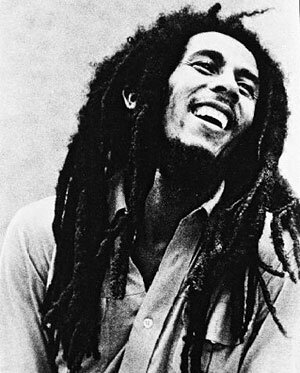Thoughts, ideas, and freeing your mind
It has been a long time since my last article. I have found excuses to keep me from writing, afraid that I wouldn't have anything to say. But each journey begins with the first step, and for me the first step seems to be the most difficult one to take. After that my mind starts to work on its own and words flow through my fingertips. I hope you enjoy my incoherent ramblings!
Emancipate yourselves from mental slavery;
None but ourselves can free our minds.
- Bob Marley
Thoughts have power, moreso when followed by action. And action is rarely present without the thought. You don't just get out of bed in the morning and go to work like a robot who has no say on what it's programmed to do. You think about what needs to be done before leaving the house, and you may even stop to think why you are going to work. Maybe you're saving money for a vacation, or maybe you feel like you are helping to make the world a better place through what you do for a living. In any case, you did not just end up where you are, but you rather got there as the end result of countless actions; actions preceded by thoughts.
Thoughts have power to manifest themselves in physical reality. The Wright brothers thought that a flying machine can be created. They believed it to be possible, even though the idea seemed ridiculous to others. But then again, it was the Wright brothers who created the world's first airplane. It was not someone who thought it couldn't be done.
Edison thought that it is possible to create light in a controllable way with electricity. He believed it so much that he famously invented 10 000 ways how to not create light before coming up with the lightbulb. What if he would have quitted? What if he would have buried his head in his hands in defeat, saying that "it is not possible" and fully embraced that thought?
Edison's lightbulb and the airplane of the Wright brothers did not exist in observable reality. They were literally born out of intangible ideas, and by taking action these men were able to turn their ideas into physical reality. Ideas and thoughts behind these inventions existed before their physical manifestations.
Our thoughts, beliefs, and how we see our relationship with the outside world provide a framework through which we operate. And our belief in what is possible and what isn't is a direct result of how that framework is built. For many people that framework was structured in a way that prevented them from even thinking about the possibility of a human being walking on the moon. But there were some with different frameworks. Some people thought it could be done, and believed in it, and it became reality.
Here is the kicker: that framework has your mind on a short leash. Since childhood that framework has been built in a way that certain things are taken for granted; as a truth that should never be questioned. This has lead most people to succumb to the notion that life is a fixed pattern of birth-childhood-school-work-retirement-death, and as a result they aren't able to see it for what it is: just another idea.
Consumerism is another example. It has become such an ingrained part of our thinking of how life should be that most people keep on creating artificial wants and needs; they buy this and that in pursuit of fleeting moments of happiness and excitement. I don't think many of them have stopped to question the origin or motives of this kind of behavior.
How the culture or the society wants us to live our lives is not a physical object that you can touch and observe. It is something that has gotten into our minds already at an early age, and then entangled itself to the framework. After you realize that these are just ideas, you begin to see you don't need to act upon them unless that is what you truly want.
This is what seeing things differently means. You can dismantle the framework that other people take for granted, and identify where it serves your purpose and where it is better to be reshaped or torn down altogether.
If you adopt this mindset you start to notice some interesting things around you. Take manners as an example: What we consider to be 'good manners' is simply one kind of behavior among other behaviors. That behavior in itself does not carry any value or any notion of 'good' and 'bad'. It is the framework in our heads that provides the context through which we observe and judge whether a certain behavior fits inside our concept of 'good' or 'bad' manners.
I think here lies the essence of an entrepreneur. They are, by definition, people who have an ability to question things that others take for granted, see them differently, and evaluate their worth. They are not limited by what others think can or can't be done. They have the ability to decide for themselves which behaviors provide value and which ones are better to get rid of.
For most people the framework is a master who needs to be obeyed. For entrepreneurs and other creative minds the framework is a tool. And if that tool is wrong for the purpose or task at hand, it needs to be changed.
In which group you belong to?
